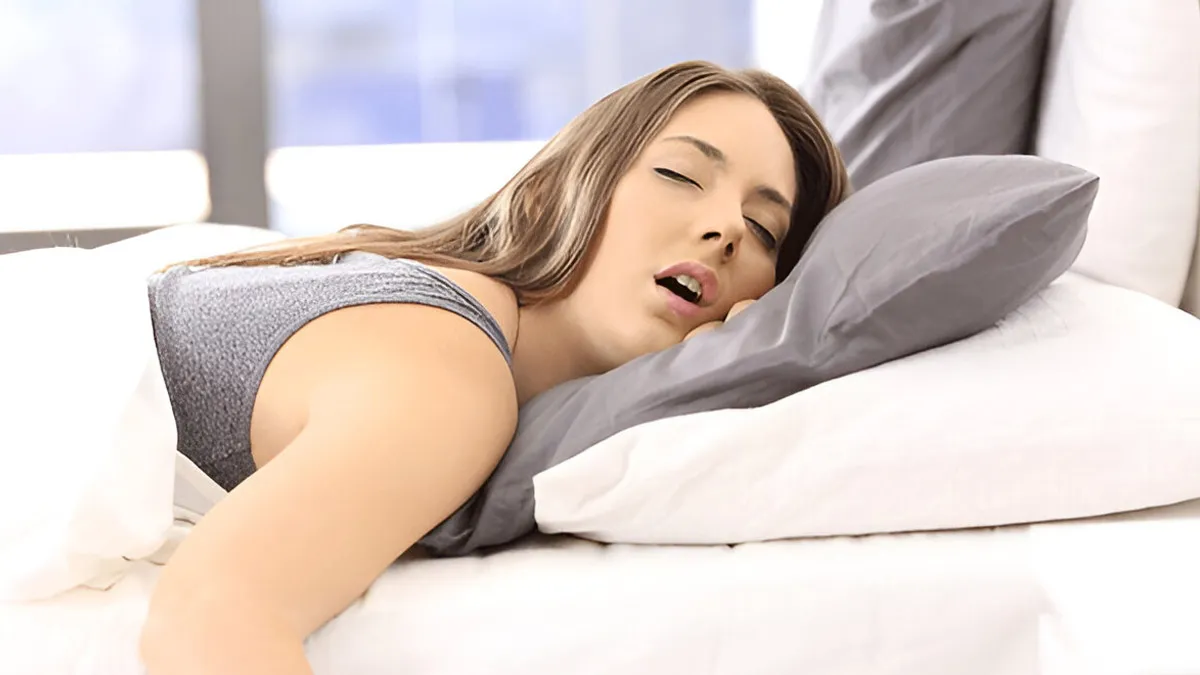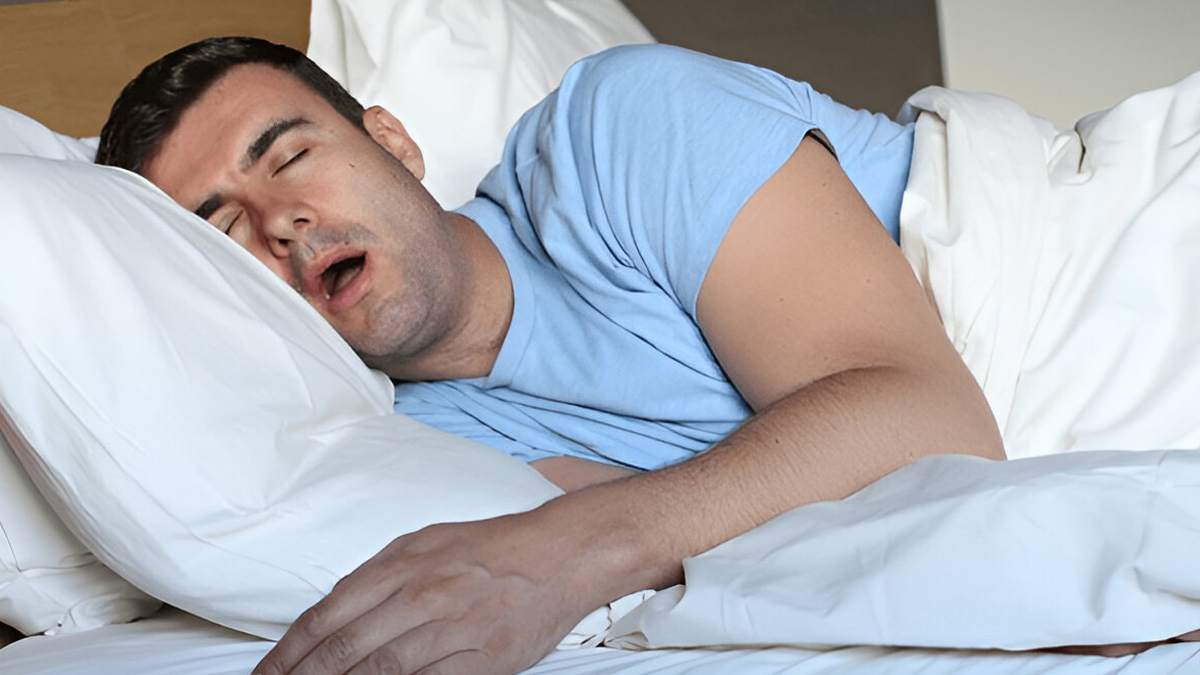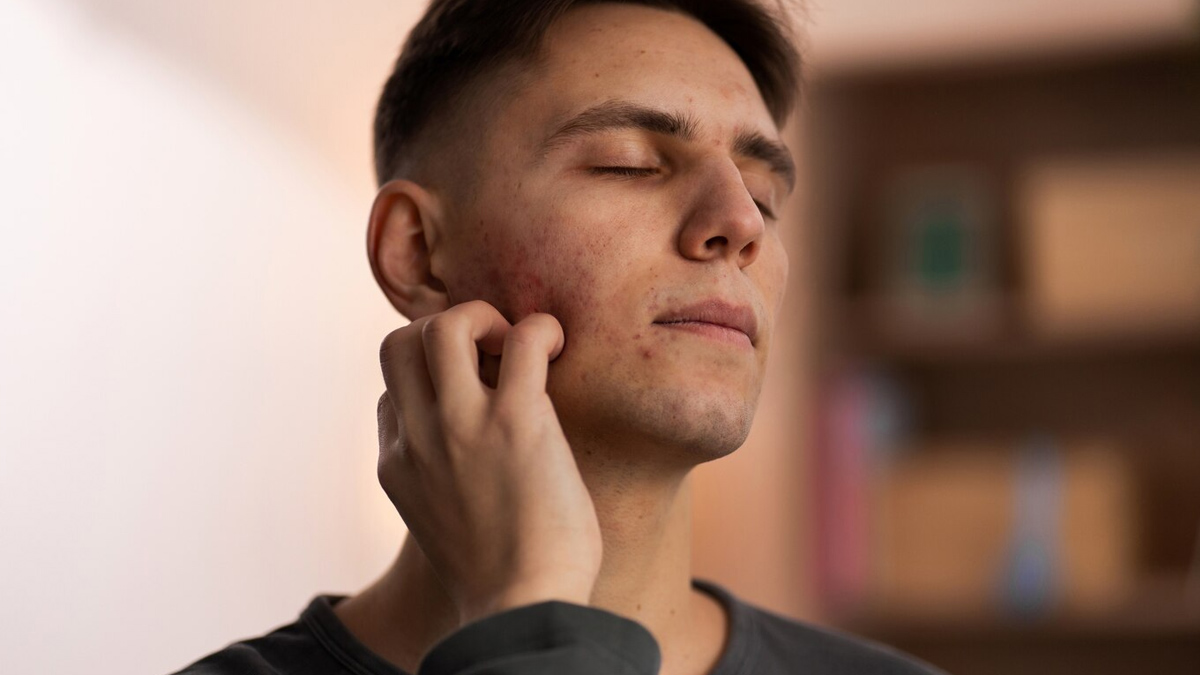
Have you ever woken up feeling like you’ve been sleeping with your mouth wide open, only to realise you did? Toss in morning dry skin, low energy, even a bad mood: breathing through your mouth overnight could be the culprit. Here's your deep dive into why mouth breathing at night can disrupt your skin, sleep and mood, backed by up-to-date research.
Table of Content:-
What Happens When You Breathe Through Your Mouth at Night?

Your body prefers nasal breathing. The nose filters, humidifies and warms air before it hits your lungs, benefits you miss out on when you mouth‑breathe. Chronic mouth breathing at night often leads to a dry mouth, higher risk of snoring, and even sleep-disordered breathing, such as Obstructive Sleep Apnoea (OSA).
According to a recent systematic review published in PLOS One, mouth breathing has been identified as a risk factor for OSA, and it worsens OSA by narrowing the airway and increasing obstruction, regardless of nasal obstruction status.
How It Interferes With Your Sleep
- Repeated breathing pauses and snoring: Mouth breathing dehydrates airway surfaces, aggravating snoring and disrupting sleep.
- Less restorative rest: People who breathe through their mouths at night usually wake up unrefreshed, even after hours in bed due to disturbed sleep cycles.
- Daytime fatigue, mood swings and depression: It linked directly to fragmented sleep, low oxygen episodes, and OSA symptoms like irritability or brain fog.
The Skin Consequences: Dryness, Irritation, Ageing

- Moisture loss overnight: Breathing through the mouth increases the loss of water from skin and lips.
- Breakdown in skin barrier: Increased Transepidermal Water Loss (TEWL) leads to skin that’s dry, itchy, red, sensitive, and often prematurely aged.
- Compromised repair cycles: Poor sleep and dehydration impair nighttime skin regeneration. That means dull, flaky or creased skin can become the norm with chronic mouth breathing.
Why It Drains Your Mood Too
- Hyperventilation effects: Repetitive mouth breathing may reduce carbon dioxide levels and nerve sensitivity and cause anxiety, muscle tension, and stress.
- Ongoing sleep loss and hypoxia: Both factors directly impact neurotransmitters and mood regulation, resulting in low energy, irritability and even depressive symptoms over time.
Practical Ways to Fix It
Retrain Breathing Habits

- Breathing exercises: Nasal diaphragmatic training and myofunctional therapy are promising methods, enabling you to breathe naturally through your nose once more.
- Consult specialists: ENT physicians or speech therapists can address structural issues, such as a deviated septum, enlarged adenoids, or allergies.
Sleep Smarter, Not Harder
- Switch sleeping position: Side‑sleep or a slight incline prevents the mouth from opening while sleeping.
- Open nasal passages: Try saline washes, gentle nasal strips or addressing persistent congestion with a specialist.
Be Cautious with Mouth Taping
- Mouth taping has limited scientific backing. Only one randomised trial among the few studies showed modest benefits in mild OSA, and evidence remains weak overall.
- Potential risks include choking, reduced oxygen intake, allergy or skin irritation, and ignoring the underlying causes of mouth breathing.
Bottomline
Mouth breathing at night isn't just a minor habit, it's a lifestyle slip-up with ripple effects that impact your skin, sleep quality, and mental well‑being. But the good news? It’s fixable. Start with positioning, open up your nasal airways, consider breathing retraining, and seek professional advice if you suspect medical causes, such as sleep apnoea or nasal blockage.
[Disclaimer: This article contains information for informational purposes only. Hence, we advise you to consult your professional if you are dealing with any health issue to avoid complications.]
Also watch this video
How we keep this article up to date:
We work with experts and keep a close eye on the latest in health and wellness. Whenever there is a new research or helpful information, we update our articles with accurate and useful advice.
Current Version